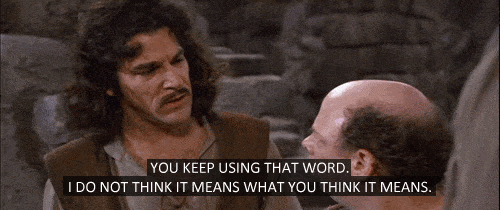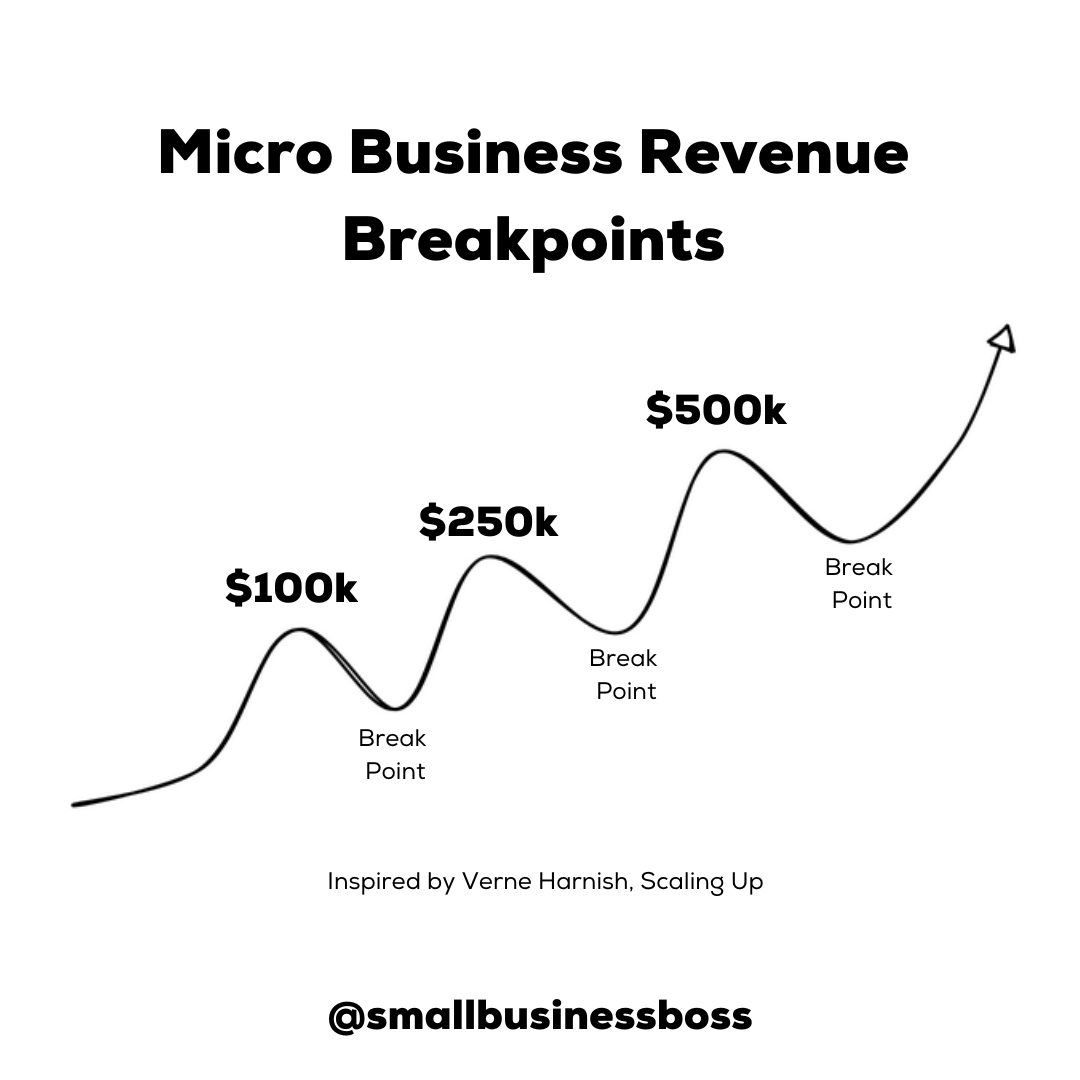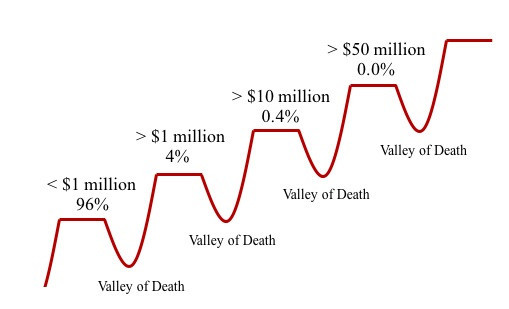The Cult Of
Scale
(and Why Sustainability is More Important)
By Maggie Patterson
All opinions in this post are my opinions and mine alone.
Scaling your business is seen as the ultimate goal for every online business owner. As the saying goes, “if you’re not scaling, you’re failing”.
In this episode, I’m digging into the cult of scale, including why scaling isn’t all it’s cracked up to be and how the relentless quest for scale is doing more harm than good for many of us.
This episode has been a long time coming as I’ve been making notes for months, and I have a lot to share with you today. I decided to delve into a conversation about scale and sustainability as these are both buzzwords that I see being used a lot by business coaches, but they don’t really mean what people think they do.

Sure, they sound good in an Instagram bio, but there’s a big part of this conversation missing.
Plus, a part of the brand promise of the work I do here at Small Business Boss is about building a simple and sustainable service business, so I really wanted to talk about what it means to be sustainable and how it’s really the counterpoint we need as business owners to the noise and hype of online business.
Listen Now To This Essay On The BS-Free Service Business Show
The Cult of Scale in Online Business
This is where what I call the cult of scale comes in. We’re constantly sold the idea that being “successful” is dependent on our ability to scale.
The status quo of manipulative marketing and sleazy sales tactics are designed to indoctrinate us with a specific version of success that comes in the form of building our personal wealth and hitting big revenue numbers. (Along with that luxury life to go with it!)
In many cases, the tactics used to sell us the dream of scaling our businesses are culty as they’re about conditioning us into a certain way of thinking and behaving. The goal is to get us to believe so that we’re willing to buy their next high-ticket mastermind, coaching offer, or group program.
The result is that scale is seen as the righteous path and anything less means you’re playing small. Scaling your business and focusing on ever-increasing revenue milestones is viewed as THE THING to do.
Over the years I’ve had countless conversations with clients where they feel like they’re doing something wrong as they’re not interested in “going all in” by scaling their business.
They’re not willing to subscribe to the idea that they should aggressively grow their business (usually with a high-ticket or one-to-many offer) so they feel like they’re an outsider and simply don’t fit. It’s a classic case of in-group/out-group dynamics that are often seen in cults.
While the cult of scale isn’t a cult in the traditional sense, the parallels are there. As Amanda Montell shares in her book Cultish, many groups and everyday things can be cult-like and no one is immune to their power.
For some of you, terming this a “cult” may be a bit of an overreach, but what seals the deal for me is the willingness to use high-pressure, cult-like tactics to achieve scale. While many of these tactics from “handling objections” to using emotional manipulation to insider secrets are extremely common in online business, they’re also right out of Dr. Steven Hassan’s BITE Model.
If you’re not familiar with Dr. Hassan’s work, he’s an expert on cults and undue influence, and a lot of his work reads like a checklist of common online business practices.
When you look critically at how, as an industry, we’re taught to scale our businesses and the methods to do so, it’s very clear that the cult of scale is really about worshipping at the altar of capitalism (probably the biggest cult we’re all currently in), even if it’s dressed up as being about changing the world or “women’s wealth”.

When Scaling is Harmful, Not Helpful
Celebrity entrepreneurs are attempting a massive con job on all of us as they try to convince us that scaling our business is about freedom or women’s empowerment.
FACTS: Capitalism by any other name is still capitalism.
As bell hooks writes in Feminist Theory: From Margins to Center in the chapter on capitalism, much of the current approach to feminism is rooted in the idea that women acquire “wealth and power as a prerequisite to feminist struggle.”
That’s exactly what we see happening every day in online business. And when we focus on scaling as a means to get “free” we’re simply buying into the extractive nature of our capitalist system.
Listen, I’m the first to say that we need to make money so we can live in our capitalist system. That’s not what I’m talking about here. What I’m referring to is this idea that by scaling our business we’re going to make the world a better place.
First, that’s a metric shit load of pressure, particularly in the current timeline. So many people are simply trying to survive right now, and it’s no small feat to “change the world” by building your business.
NOTE: By no means am I writing a permission slip for us all to check out and ignore everything, but why does our business need to be the vehicle for everything? Sounds like a lot of bullshit to me and twisted logic to justify paying for programs that are designed to extract your money while teaching you to make more money.
Maybe for everyone’s sake, we could dial that back to doing what we can on a day-to-day basis, and more importantly, not falling for the BS lies of “scale your business” that requires us to exploit ourselves, our clients, our teams and more to achieve our goals.
After all, what good is your donation to a political campaign because you hit a revenue milestone when you underpaid your team and they can barely survive? Or have you worked yourself into a state of complete burnout?
This is where scale is harmful, not helpful. It sounds appealing for so many reasons, but scale often comes at a steep cost.
On a personal level, as we scale it’s easy to fall into the trap of hustle culture as we grind ourselves into the ground.
If you follow conventional online business teachings about scaling, it’s all about hiring so you can get free while you underpay your team and generally exploit them.
Then, with customers and clients, we deliver less and less for a higher price point in order to maximize our profit margins.
None of this is ethical, let alone sustainable.
That’s why we see so many of these companies have massive retention problems, a revolving door of clients and CEOs who get stuck in a cycle of burnout.
It’s also why so many of these companies ascend to the multi-six figure or million dollar mark and then they totally fall apart or dissolve completely.
The Case for Sustainability


No one starts a business to have these types of problems. But as long as we’re subscribed to the cult of scale, we’ll be building a business that is more likely to be unstable.
In the 10 years I’ve been in the online business world I’ve seen this cycle happen countless times with so many businesses. I’m literally making a mental list of people I can remember and wondering what happened to them as I write this.
Usually, they scaled so quickly that they literally broke their businesses. So while they hit a big revenue number and were the “next big thing” for a hot minute, they quickly disappeared. They didn’t have their business fundamentals handled and they built a dream business that was more like a nightmare.
None of this is to say that you can’t grow a business. But how you go about doing that matters the most because if you’re only focused on scale, you’re likely missing what you need to sustain your business.
As someone who’s been running my own business for 17 years, sustainability has always been my top priority. I’m more interested in having a business 10 years from now and supporting my lifestyle than a vanity metric or sacrificing my values. (Also, I fully recognize the role privilege has played every step of the way.)
The concept of sustainability is about “meeting our own needs without compromising the ability of future generations to meet their own needs.” Usually, we think of sustainability in terms of climate change and environmental practices, but the United Nations has identified the three pillars of sustainability as being the environment, economy, and society.
When it comes to business, Harvard Business School defines sustainability as “doing business without negatively impacting the environment, community or society as a whole.”
By this definition, so many of our businesses aren’t built to be sustainable, especially if you consider yourself in that scenario. We make short-term decisions that prioritize short-term financial gains, without considering the impact. And that’s more likely to happen when we’re obediently following the teachings of the cult of scale.
Having a sustainable business strategy requires that we untether from the status quo of online business, the cult of scale and capitalism and consider how we can run our business in a way that’s not extractive or exploitive.
Micro Business:
Sustain or Grow?
As microbusiness owners (a category of small business for companies with less than 10 employees) we have limited resources.
When we prioritize sustainability, we’re able to make the best use of our resources and act with respect for the environment, economy, and society. Plus, for many of us, it’s a tangible way to ensure we’re running a business in alignment with our values.
From my point of view, that has a significant impact on each of us as individuals, our teams, clients, and by extension, our communities and society as a whole.
In thinking about sustainability in the context of your business, a missing piece of the puzzle can be a strategic decision to not grow any further and to simply sustain what you’ve built.
No one really talks about this, but it’s okay to grow slowly or to stay where you are.
Because remember the valley of death where businesses struggle to get to the next revenue level? In my experience, for micro businesses, there are several valleys of death, or as I call them “revenue breakpoints” that naturally happen before the 7-figure mark.

A common one is at the $100k mark, another is at the $250k mark, and another is at the $500k mark. At each stage, your offers, how you deliver them, your costs, and potentially your team all need to adapt in order to cross the valley.
When looking at what it may take to get through that next revenue breakpoint, you need to consider if that’s a sustainable decision for you and your business.
For example, if you’re stuck at a specific revenue level, but you need to hire in order to book more clients, and that’s going to cost more than you’ll make, that’s not a sustainable decision. You’ll get to that next revenue level, but it comes at a cost and it may result in you making a lower profit.
There have definitely been times as I’ve been in growth mode where I’ve struggled with the changes needed to get to that next level. More than once, it led to some downright terrible business decisions.
There have been other times where I’ve done the math on what we’d need to reach the next revenue level and simply decided I wasn’t interested.
That’s been the case for the last two years as we’ve had small gains in revenue, but we’ve made significant gains in efficiency and more importantly, our quality of work and life. Deciding to focus on sustainability has led to higher team compensation, a four-day work week, a better profit margin, and more. I’m confident that I wouldn’t have been able to do those things if we’d been focused on the next revenue target and had to cross the next “valley”.
All of this is a personal decision you get to make as the leader of YOUR
business based on your specific situation. That said, it shouldn’t be motivated purely by a revenue goal. You need to look at the full picture including what’s needed to grow, and how you can ensure what you’re doing is truly sustainable.
Finally, I want to wrap up by saying that I don’t think growth or scale is necessarily bad, but rather the zero-sum approach to it that it’s a MUST for every business owner is the problem.
If you’re going to focus on scale, you need to also have periods of time where you’re building foundations and creating sustainable systems for the future. That way you don’t set yourself up for the stress and sleepless nights and end up completely hating what you’ve built.

